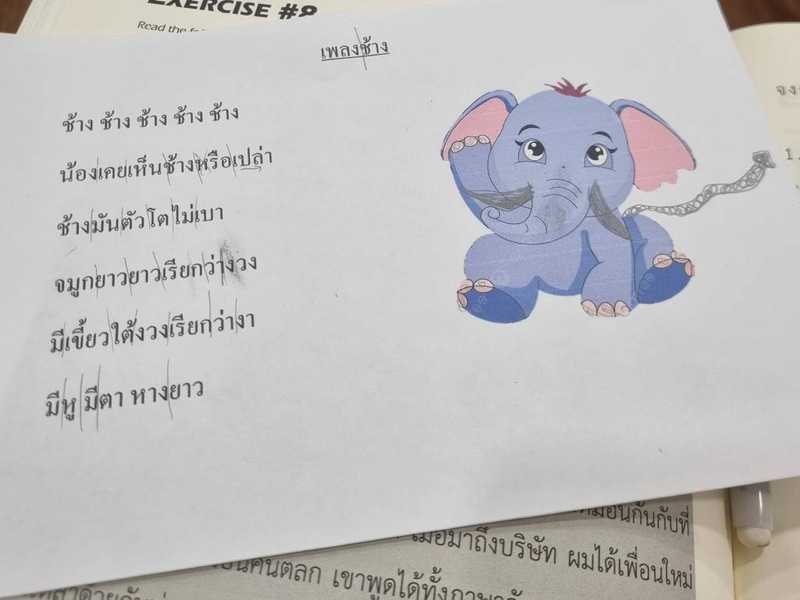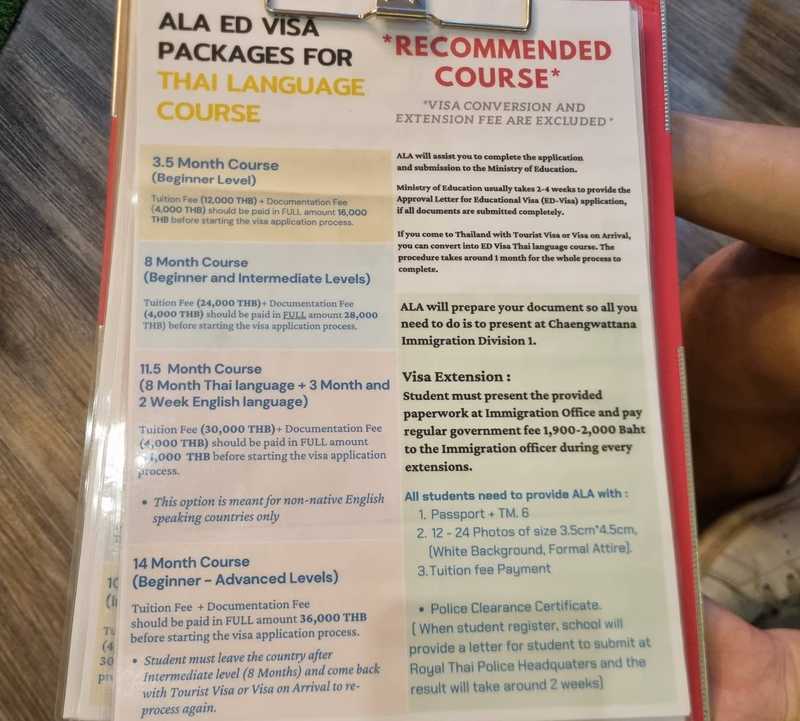Learn Thai, Learn Something, and Get a Visa — My Thoughts After Spending a Year on an Educational Visa in Thailand
You come to Thailand as a tourist, you like it and decide to stay longer. You start doing visa runs to extend your stay. At some point, you've spent enough time on tourist visas, so you decide to find a new way to stay longer in the country. Many people recommend an educational visa; you can learn the language (or, for instance, muay thai) and get a visa for a year. Sounds like a good deal. Below I'll try to provide practical information about the educational visa and share my thoughts.
Types of educational visas, costs, etc.
The specific types of visas depend on where you want to live for the foreseeable future. From what I've seen, the widest selection of visas and schools is in Chiang Mai, but they're also available in other touristy/expat places like Bangkok, Phuket, etc. The most popular is learning the Thai language. Additionally, you can learn other languages such as: English, Chinese, and Japanese. An interesting option can also be learning Muay Thai.
Regarding learning Thai (as I checked these offers) the annual cost (course + visa etc.) ranges from 35,000 to 50,000 baht. Of course, it all depends on the school; it could be slightly more expensive or a bit cheaper. Importantly, courses that qualify for the ED visa are daytime courses, where we must attend classes several times a week. This means that we must regularly attend school and cannot travel extensively during this time.
What's also very important, all Thai language courses (probably others as well) are conducted in English (or translations in textbooks), so you should have at least intermediate proficiency in this language to understand what the teacher wants to convey.
Cost of classes at the Duke school in Bangkok, August 2023
Cost of classes at the Ala school in Bangkok, October 2022
The school I chose and how the course went
I decided that I wanted to spend the next year in Bangkok, so I was looking for schools in this city. Near where I lived, I found two schools that had very good reviews — Duke and Ala. I spoke briefly with the staff and signed up for a trial lesson at both places. Duke is known as the best school in Bangkok and this was confirmed after the trial lesson. I felt that the teaching there was done using better methods. What also convinced me to choose it was the fact that the course with a visa for 1 year is 420 hours. This means that the course is shorter than the entire year (you can do the math ;)) and then there's some time left to enjoy Thailand.
Visa
As I was already in Thailand when I signed up for the school, the school started the procedure of converting my tourist visa to an educational one. I had to fill out a few forms, visit the school twice, and go to immigration twice. After this time, I became a holder of an educational visa. It's worth noting that in the case of studying at a private school, the educational visa is not issued for a full year all at once. It's given for a few months at first, and then every 2 or 3 months, you have to go to immigration to extend it.
Course
Once all the paperwork was done, the course finally began. Courses at Duke are very traditional in terms of format, with 3-hour classroom blocks — every workday. On the one hand, you can see that the school has very good teaching methods. On the other, they want students to achieve results quickly. This means that the course was very intensive, and after returning from school, I usually had to spend an additional 1-2 hours on independent study. However, I noticed the effects quite quickly.
Results
At the end of the course, I was able to read and write in Thai (slowly) and communicate in simple situations. I would describe my level as beginner. Importantly, I feel generally familiar with the Thai language and understand many concepts that might be confusing to a beginner. At the moment, my level is good enough that I can independently work on further vocabulary and grammar, and can practice reading and writing more fluently.
Pros of the ED visa course
The advantages of the course with a visa are pretty obvious: you have a guaranteed legal stay in Thailand, and you can learn the language. Additionally, the price of the course is usually not too high.
Cons of the ED visa course
When it comes to the downsides, I encountered a few that aren't talked about much and I wasn't aware of all of them. This isn't a complaint, but I believe it's worth knowing them to make an informed decision. Due to the misuse of educational visas and non-attendance at courses by some users, currently, the visa needs to be extended every few months. It's not a huge problem, but trips to immigration every 2 months can be somewhat irritating. Since we get a visa due to studying at a school, according to regulations, we cannot leave Thailand too much (at my school, they told me I could leave Thailand for a maximum of 7 working days throughout the year). If you ignore this restriction, our visa might not be extended. It's also worth considering the intensity of the course and how it will impact our life. As I said, the course at Duke was 3 hours a day + about 1-2 hours of self-study, which meant I didn't have much time left for other things. I think, for instance, remote work during this period would have been very difficult or even impossible.
Where to find courses with an ED visa?
It all depends on where you plan to study. If you type into Google: "City + thai language visa", you will surely find many options. Since I did some research earlier, I will share the results below.
- dukelanguage.com - Duke in Bangkok, Thai learning
- alalanguage.com - Ala in Bangkok, Thai learning
- chula.ac.th - Chula University in Bangkok, Thai learning
- chakritmuaythaischool.com - Muay Thai in Bangkok
- corecombatchiangmai.com - Muay Thai in Chiang Mai
- thaichefschool.com - Cooking in Bangkoku



